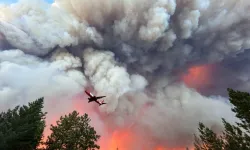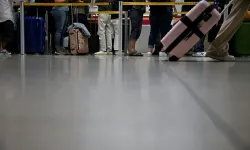Canadian Prime Minister Justin Trudeau said his country "does not intend to provoke India over its alleged involvement in the killing of the separatist Sikh leader" but wants New Delhi to deal with the matter properly.
Trudeau announced the previous day that Canadian intelligence agencies were actively pursuing credible allegations (evidence) linking Indian agents to the June shooting of 45-year-old Hardeep Singh Nijjar in British Columbia.
Yesterday, India rejected Ottawa's allegation as "absurd" and decided to expel a Canadian diplomat at ambassador level.
The decision is seen as a step that further worsens the already weak diplomatic relations between the two G-20 countries.
Following New Delhi's harsh reaction and denial, the Conservative opposition is pushing Trudeau to make public the evidence he has.
The Canadian Prime Minister stated that Ottawa decided to talk, "Because we wanted to make sure that we had a solid basis for understanding what was going on and that we took the time to talk to our allies."
Speaking to journalists, Trudeau stated that the case will have far-reaching consequences in international law.
"The Indian government needs to take this matter very seriously. That is what we are doing, we do not want to provoke or escalate."
The killing derailed long-running negotiations on a potential bilateral trade deal.
According to Reuters, a source familiar with the matter said Canada's decisions to halt talks on September 1 and postpone a major trade mission scheduled for next month on September 15 were directly linked to concerns about the murder.
So far, however, Canadian officials have so far refrained from publicly commenting on why they believe India may be linked to Nijjar's murder.
A senior Canadian government source, who requested anonymity due to the sensitivity of the situation, said that evidence "will be shared in due course".
The same source added that Canada was working very closely with the United States on the matter.
Hardeep Singh Nijjar was shot dead by gunmen in his car outside a Sikh cultural center in Surrey, British Columbia, Canada, on June 18.
Nijjar had been campaigning for the Sikh community in India to become independent under the name "Khalistan" and was designated a "terrorist" by the Indian government in 2020.
Indian agents at work! Trudeau: We are waiting for a response from India
Ottawa says there are credible allegations of Indian involvement in the murder of Canadian citizen and Sikh separatist leader Hardeep Singh Nijjar in Canada and wants the murder to be taken seriously. India rejects Canada's accusation.
Trending news

Snoop Dogg to carry the Olympic torch

Lily James Expresses Admiration for Hailey Bieber’s Rhode Skincare Line

Taylor Tomlinson Will Explore Her Faith and Sexuality on Tour!

'Alien mummy' in Peru raises eyebrows

Scandal in the heart of Europe: Child abuse in a church!

Kamala Harris’ Running Mate: Here’s Who Could Be Her VP After Biden Drops Out And Endorses Her






